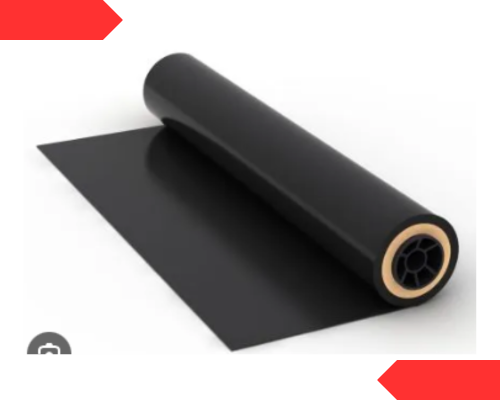Compostable Plastic Sheets
Compostable extruded sheets are specialized materials that are designed to degrade into compost when exposed to the right conditions. They find applications in industries where sustainable and eco-friendly packaging solutions are desired. In this section, we will explore the applications and advantages of compostable extruded sheets.

Applications:
Food Packaging:
Compostable extruded sheets are commonly used in the food packaging industry. They are employed for the production of trays, containers, and wraps for fresh produce, bakery goods, and other food items. Compostable sheets provide a sustainable alternative to traditional plastic packaging, reducing environmental impact and promoting waste diversion through composting.
Agriculture and Horticulture:
Compostable extruded sheets have applications in the agriculture and horticulture sectors. They are used for manufacturing mulch films, seedling trays, and plant pots. Compostable sheets help suppress weed growth, retain moisture in the soil, and provide a biodegradable option for plant cultivation, eliminating the need for plastic waste disposal.
Retail and Consumer Goods:
Compostable extruded sheets are utilized in the retail and consumer goods industry. They are used for various packaging applications, such as bags, pouches, and labels. Compostable sheets provide a sustainable solution for packaging products, allowing retailers and consumers to reduce their environmental footprint and contribute to waste reduction efforts.
Healthcare and Personal Care:
Compostable extruded sheets have applications in the healthcare and personal care sectors. They are used for manufacturing items like disposable gloves, aprons, and medical packaging. Compostable sheets offer a sustainable alternative to conventional plastic materials, reducing the environmental impact of single-use healthcare and personal care products.
Advantages:
Environmental Sustainability:
The primary advantage of compostable extruded sheets is their environmental sustainability. These sheets are made from renewable resources, such as plant-based materials, and are designed to break down into compost when properly composted. Compostable sheets help reduce reliance on fossil fuel-based plastics and minimize waste sent to landfills.
Reduced Environmental Impact:
Compostable extruded sheets have a significantly lower environmental impact compared to traditional plastic materials. They contribute to reducing greenhouse gas emissions, conserving energy and water resources, and minimizing pollution associated with plastic production and disposal. Compostable sheets support the transition to a more sustainable and circular economy.
Biodegradability and Compostability:
Compostable extruded sheets have the advantage of being biodegradable and compostable. When exposed to the right conditions, such as in industrial composting facilities, they break down naturally into organic matter without leaving harmful residues. Composting compostable sheets helps enrich the soil, closing the loop in the waste management cycle.
Versatility and Performance:
Compostable extruded sheets offer versatility and performance comparable to traditional plastic materials. They can be engineered to have suitable barrier properties, moisture resistance, and strength for various packaging applications. Compostable sheets can meet specific performance requirements while still offering the advantage of environmental sustainability.
Consumer Preference and Marketability:
As sustainability becomes increasingly important to consumers, compostable extruded sheets provide a marketable advantage. Businesses that offer compostable packaging solutions can attract environmentally conscious customers and differentiate themselves in the market. Compostable sheets align with consumer preferences for eco-friendly products and contribute to building a positive brand image.
Regulatory Compliance:
Compostable extruded sheets align with regulatory frameworks and standards focused on reducing plastic waste and promoting sustainable practices. They comply with composability certifications and standards, ensuring they meet specific criteria for biodegradability and composability. Compliance with such standards enhances the credibility and acceptance of compostable products in the market.
